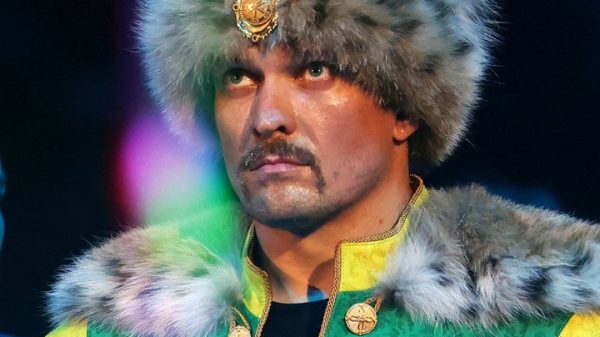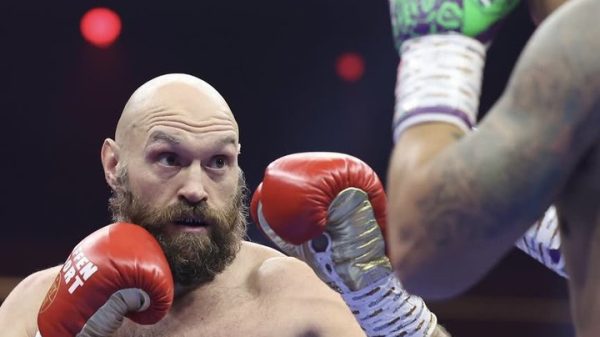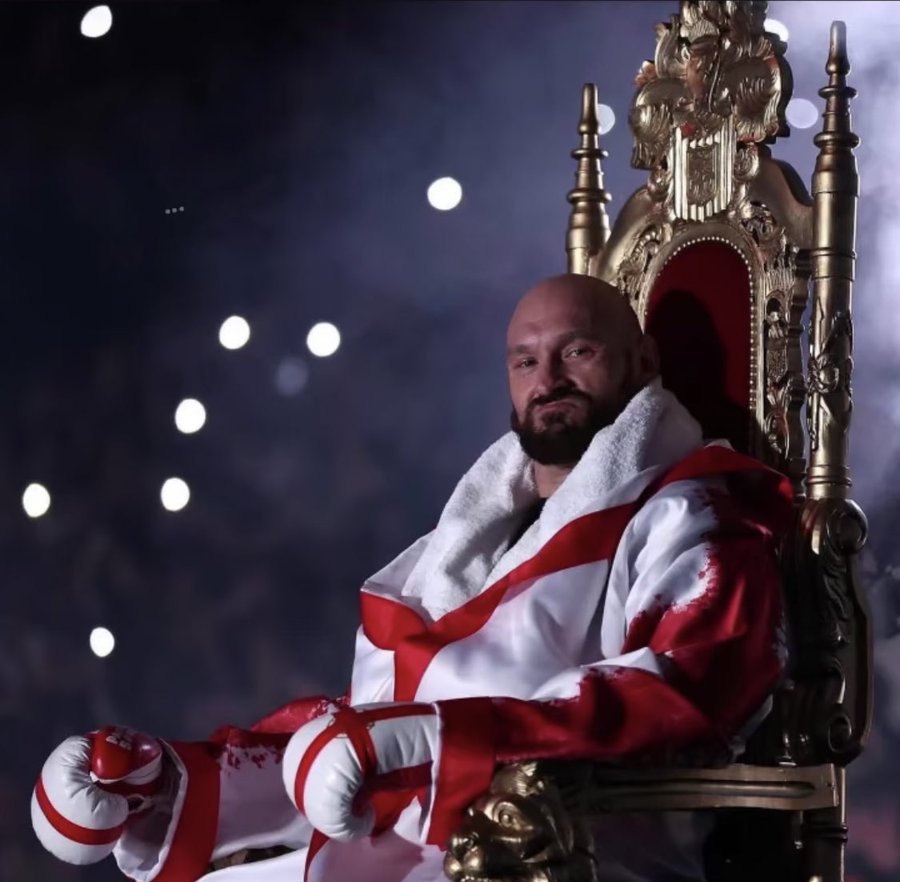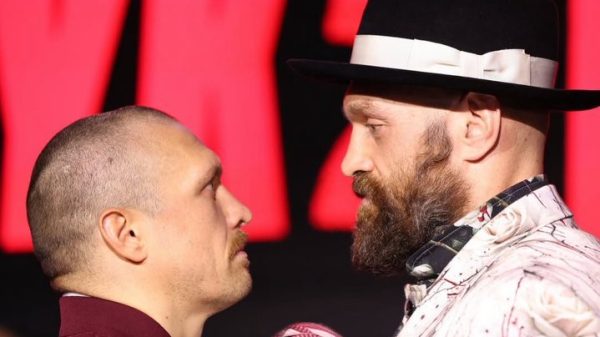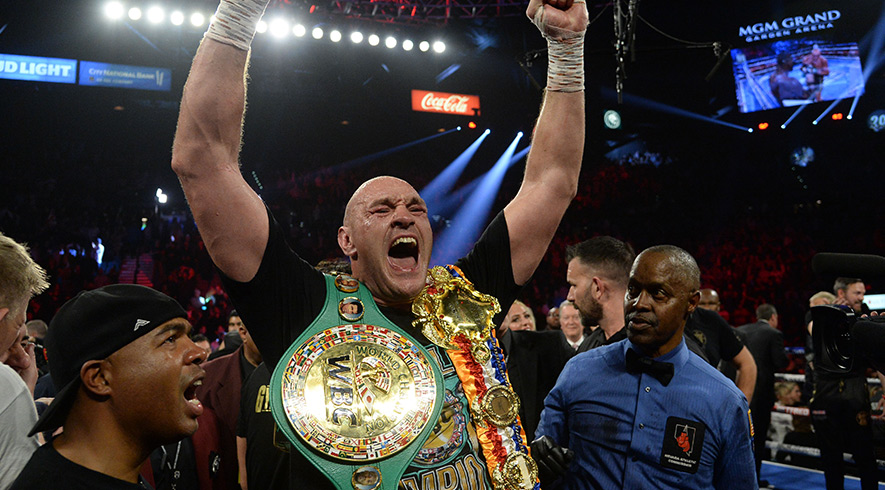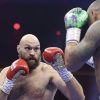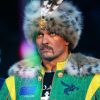By Tyson Bruce
1. Mike Tyson vs. Riddick Bowe:
When & What Weight:
1992 at Heavyweight.
Why It Didn’t & What Would Have Happened:
The fight of course never happened because in 1992 Tyson was convicted of raping the beauty queen Desiree Washington and spent three years in prison. By the time Tyson was out of prison in 1994 Bowe was essentially a spent force. However, had this not occurred, 1992 would have been the perfect date because Bowe was at his peak in terms of discipline and motivation and Tyson was still in his physical prime
Bowe’s prime was very short lived and he peaked in 1992 when he defeated Evander Holyfield for the heavyweight championship of the world. His wavering focus and clinical binge eating destroyed his vast potential and dramatically shortened his time as a world-class professional. However, riding the crest of his awesome victory over Holyfield and given the massive importance of a fight against the most celebrated fighter of the era in Tyson, one can assume that Bowe would have possessed the motivation he usually lacked to summon forth his best effort. If we suppose that the version of Bowe who fought Evander Holyfield the first time showed up against Tyson then his chances for victory would have been very strong. Tyson only weighed about 215 in his prime and showed against Douglas and Lewis that he struggled against larger men with good jabs. Bowe’s jab was one of the best in heavyweight history.
Like Holyfield, Tyson’s advantage would have been his quickness, however, by comparison Tyson had vastly superior punching power. One thing that can’t be taken away from Bowe, even during his lethargic performances against the likes of Golata, was his ability to take a punch. In three fights against Holyfield he only touched the canvas once and showed an incredible resiliency. Tyson’s best chance for victory would have been to attack Bowe in the early going, as he was clearly more effective within the first six rounds of a bout. In fact, Tyson only had four knockouts past the sixth round in his entire career.
The most likely scenario is that the good big man beats the good little man. Bowe would have used his nearly twenty-pound weight advantage and six inches in height to strategically survive Tyson’s early assault and control the remainder of the fight with his long jab and excellent uppercuts. In my opinion this fight would resemble a more competitive and dramatic version of Lewis’s victory over Tyson some ten years later.
2. Juan Manuel Marquez vs. Erik Morales:
When & What Weight: 2004 at 130.
Why It Didn’t & What Would Have Happened:
In many regards the combination of fights between Manny Pacquiao, Juan Manuel Marquez, Marco Antonio Barrera and Erik Morales was the fabulous four (Leonard, Hagler, Hearns, Duran) of the new generation. However, what prevents them from having the conclusiveness of those celebrated rivalries was that Marquez and Morales never managed to fight each other. Unlike Bowe-Tyson this bout did not occur because of any particular circumstance or business conflicts. Instead it seems to have slipped through the cracks simply because of continual bad timing and coincidence. It’s a shame because in 2004 when Marquez had his sensational draw against Pacquiao and Morales was riding a dominant wins streak against Ayala, Chavez and Hernandez it would have been the perfect time for the Mexican stars to meet.
This bout would likely have had a similar dynamic to the Marquez-Pacquiao fights, where Morales would have been the aggressor and Marquez the counter puncher. That said, Morales would have presented a different picture than Pacquiao because his method of attack was much more deliberate than Pacquiao’s wild, unorthodox aggression. Despite being an excellent defensive fighter Marquez showed a vulnerability to right hands against Mayweather and Bradley. Morales made a career out of blasting guys with his right hand, which he used from a variety of different angles. This would have been his best weapon against the crafty Marquez.
Although in 2004 Marquez was still fighting at featherweight and Morales was already an established junior lightweight, Marquez was the naturally bigger man. Marquez was always a massive featherweight and showed a greater ability to carry his strength up with him than Morales, who was never really a commanding force at 130 pounds. Marquez also had the slightly faster hands, so in a bout that would have almost certainly featured an abundance of toe-toe exchanges Marquez’s faster combinations and excellent timing would have been advantageous.
The difficulty in predicting a winner in this bout is that both men were complete fighters that showed themselves capable of beating a variety of different styles. Additionally, both men showed a tendency of having off nights in the ring. Marquez suffered two dubious losses to the much less talented Freddie Norwood and Morales lost a one-sided decision in a lethargic performance against Zahar Raheem. The safest prediction in this long-lost showdown would be to go with the smarter boxer that is unquestionably Marquez. His slight advantage in speed and skill would see him overcome Morales’s warrior sprit and slightly better chin to win a hotly contested split-decision.
3. Felix Trinidad vs. Shane Mosley
What Time & Weight:
2001 at catch weight of 152 LBS.
Why It Didn’t & What Would Have Happened:
That this fight didn’t happen is totally confounding. Trinidad and Mosley both scored career defining victories over Oscar De La Hoya little over one year apart. If one or both had secured a rematch with the higher earning De La Hoya it would have been understandable, but Mosley didn’t get a rematch until 2003 and Trinidad and De La Hoya never ended up fighting again. The only logical reason that the fight didn’t occur was because right after the De La Hoya fight Trinidad, after years of killing himself to make weight, moved up to junior middleweight, where he enjoyed the most celebrated years of his career. Mosley, on the other hand, remained at welterweight—only fighting over 147 a handful of times during or around his prime.
In 2002, after Trinidad’s win over Fernando Vargas and a year after Mosley’s conquest of Oscar, this fight could have been a PPV bonanza. In order to make the analysis fair it would make sense to imagine the bout taking place at a 152 pound catch weight like the recent Mayweather-Alvarez bout. With this compromise neither man could claim a definitive physical advantage.
A lot of critic’s marginalized Trinidad after he was dominated by Bernard Hopkins, but in doing so they are neglecting just what a power punching force he was at 147-154. Trinidad was an absolutely lethal puncher to both the head and body with either hand. He was probably the hardest single puncher for his weight since Thomas Hearns. Could he be out-boxed? Absolutely, but no one–safe for maybe De La Hoya–ever managed to do so until he moved up to middleweight. Excellent boxers like Oba Carr, Pernell Whitaker, and David Reid all yielded to Trinidad’s relentless aggression. Against Mosley he would not have be up against the same physical disadvantages he was against Hopkins or Wright. He would have both a height and reach advantage over the more bulky Mosley.
When most critics discuss this bout they often pick Mosley as the winner because of his perceived advantage in boxing ability. However, Mosley’s label as a boxer is somewhat misleading. Mosley was actually more of a slugger with tremendous hand speed as opposed to a traditional boxer-puncher. In all of his loses he was out-boxed by men that moved and out jabbed him. Even Miguel Cotto defeated him not through slugging but by boxing. Contrastingly, Mosley’s biggest wins against De La Hoya (twice) and Margarito were all achieved largely as the result of Mosley’s ability to out-punch his opponent. Mosley always did best against guys that would come straight onto him where his hand speed, commitment to the body and excellent chin would be a huge advantage. Against Trinidad he would be fighting someone with the dimensions of Vernon Forrest but a style more akin to a skilled version of Margarito
In 2001 the odds for this fight would be extremely close with Mosley probably being a slight betting favorite. A lot of this fight would depend on how both men could take the others power. Although Trinidad was put on the canvas many times throughout his career he always got up to fight harder. Mosley was very nearly knocked out by Vernon Forrest but was seldom ever even stunned throughout the rest of his career. Trinidad would definitely represent the hardest puncher Mosley would have ever fought, so it’s difficult to guarantee that he would have been able to handle Tito’s power. However, given Trinidad’s straightforward approach it’s difficult seeing him overcoming a prime Mosley’s massive speed advantage. Look for Mosley to win a close but fair decision in a clean, crisp punching affair. However, given Trinidad’s power and size a reverse result would not be surprising.

